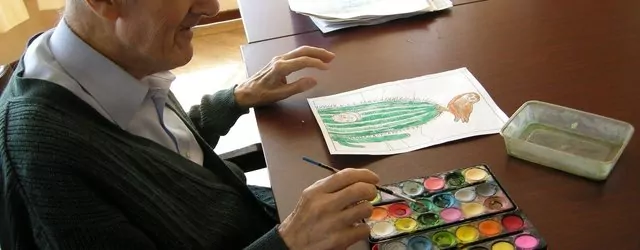For most of us, property is the most valuable asset we own. Whether it’s the family home, a holiday house away, or properties owned as an investment, they represent a large proportion of our personal wealth.
With property being so valuable, it is usually the determining factor in whether or not you have to pay for Residential Care in your later years, whilst also forming the bulk of your overall estate value when calculating Inheritance Tax.
Many people are therefore tempted to transfer their properties into the names of their children as they enter retirement, in an attempt to reduce care home fees and inheritance tax. Whilst this may seem like a straightforward solution, the reality is that it can often fail to have the desired effect and may actually cause greater difficulties for yourself and your family.
Inheritance Tax
A common misconception is that you are completely protected by the ‘Seven Year Rule’ when giving away your property, preventing you from having to pay any inheritance tax at all after a period of seven years.
Whilst this seven year rule does exist (and offers full protection for gifting cash and assets), when it comes to property there is an important caveat. Giving a property away but continuing to live there is considered a ‘Gift with Reservation of Benefit’.
Should you wish to continue living in the property, you must pay a fair rent to the new owner (‘fair’ being based on rents charged on similar properties in the area) and continue to pay your share of the bills, all under a formal tenancy agreement drawn up by a solicitor. As ‘landlords’, the new owners of the property would also now be responsible for self-assessing and paying the income tax on the rental payments.
Should you give the property away, but continue to live there rent-free, then HM Revenue & Customs will still consider it a part of your estate when calculating inheritance tax, regardless of how much time has passed since you gave it away and paying no attention to any ‘Seven Year Rule’. This would result in no inheritance tax saving whatsoever.
Residential Care Fees
Should you require residential care and ask the local authority to pay for some or all of your care fees the local authority will carry out a full review of your assets and income. This may include investigating the circumstances of any transfers of your assets.
Unfortunately, the Local Authority may well conclude that giving away your property was a ‘deliberate deprivation of capital’, meaning that you gave away your property in an attempt to avoid paying for residential care. There is no ‘Seven Year Rule’ to protect against this, and the decision would mean that you would still be required to pay the full amount of your care costs regardless.
Whilst you may be close today, it is an unfortunate reality that families do fall out. Should the new owner of the property decide to sell the property, you could well find yourself no longer having anywhere to live. Similarly, should you give away your property and then still need to pay for care fees in the future, you would no longer have a way to afford them and would receive only the most basic care with no choice over where you are placed.
Other Considerations
Whilst it is important to make provisions for the future, you should keep in mind that you may never actually need residential care, in which case you could find yourself giving away your property needlessly. Even taking care fees out of the equation, gifting a property has its own associated drawbacks, and can deprive you of your security as you grow older. You would not be able to use the property to raise money for example, through an Equity Release or Re-Mortgage, and would find yourself reliant on the financial stability of someone else. If you were to transfer your home to your child and they find themselves getting divorced, facing financial difficulties, or even passing away before you, then you could well find yourself losing the right to live in your own home.
Being gifted a property also has implications for the person receiving it. Giving your property to your children could create a capital gains tax problem for them. In trying to reduce inheritance tax you could well find yourself inadvertently creating an even larger tax bill for your children. The property would then be counted as being theirs for their own Inheritance Tax Band purposes, and will be taken into consideration when calculating Stamp Duty Land Tax on any future property purchases of their own they may make.
As you can see, giving away your home is not quite as straightforward a solution as it may first appear. If you are considering giving away your property, we would highly recommend speaking to one of our specialist solicitors before making any decision, who will be able to assess your particular circumstances and advise on the best way forward.

How to Reduce Inheritance Tax (IHT) by Gifting Assets During Your Lifetime
Discover how gifting assets during your lifetime can reduce inheritance tax (IHT) in England. Learn about tax-free allowances, the 7-year rule, and smart estate planning strategies to protect your wealth.

What is an LPA?
Kathryn Wheeldon explains what an LPA is, why they are useful and how to make one.

LPA Registrations Hit Record High—Why Planning Ahead Has Never Been More Crucial
In recent years, the UK has seen a dramatic rise in the number of Lasting Power of Attorney (LPA) registrations, with over one million applications recorded in 2023 alone—a 37% increase compared to the previous year. This surge reflects a growing awareness of the importance of future planning, especially in an ageing society where mental capacity issues are becoming more prevalent.

Coronavirus vaccine consent and mental capacity
The Coronavirus vaccine is being rolled out quickly and among the first groups of people to receive it are the elderly living in care homes with Dementia. These people may be unable to make the decision for themselves to have the vaccine and give the consent required.

Why both types of LPAs are important
Recent months have been a real challenge for those families with relatives in care homes, particularly where the relative has dementia and time with them is very precious. For some, the restrictions on visiting have simply become unbearable.

Business LPAs- Protecting your most important asset
All businesses protect their buildings and assets with insurance in the event that the worst should happen, but very often, no consideration is given to what would happen to the business if a key decision maker was suddenly not around. Without anyone appointed to take over the running of the business, even if only temporarily through illness, important deadlines and decisions may be delayed or even missed, putting the future of the business at risk.

What is a Lasting Power of Attorney?
You may have heard about an LPA but may not be sure what it does. Our latest blog answers some of your most frequently asked questions.

Deputyship fee refunds scheme
You might be eligible for a refund if you were overcharged deputyship fees by the Office of the Public Guardian (OPG) for England and Wales. Refunds are being offered to those who were charged more than was necessary for certain deputyship fees charged for any period between 1 April 2008 and 31 March 2015.

Get your Power of Attorney set up
You will have seen lots of articles recommending that you plan for death by writing a will, but what happens if you become unable to make decisions for yourself whilst you are alive; either through illness or accident? Who will make decisions on your behalf and how will your finances be run?

Lasting Power of Attorney – The Facts
We all know that we should write a Will, but too few of us know about and recognise the need for something called a Lasting Power of Attorney or LPA.


